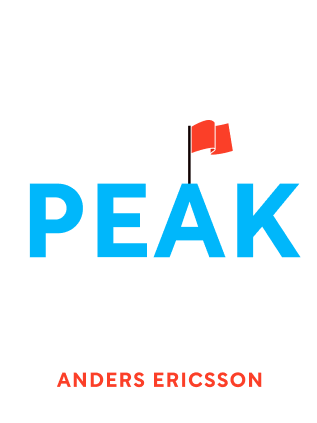

This article is an excerpt from the Shortform book guide to "Peak" by Anders Ericsson. Shortform has the world's best summaries and analyses of books you should be reading.
Like this article? Sign up for a free trial here .
Are you looking for book quotes from Peak: Secrets From the New Science of Expertise by Anders Ericsson? Which quotes and passages best describe the concepts from the book?
In Peak, Ericsson studies peak performers in different fields to learn how they developed their abilities. The following are Peak book quotes that highlight the key concepts about purposeful practice, deliberate practice, and how anybody can become an expert if they practice the right way.
Keep reading for Peak book quotes.
Peak Book Quotes
Peak: Secrets From the New Science of Expertise explores how peak performers in music, athletics, and other fields develop their abilities. Through purposeful practice and the development of effective mental representations, nearly anyone can become an expert in whatever field they choose.
The book shatters many illusions about expertise—chiefly, that it comes from genius or “natural” talent. Instead, it comes from rigorous practice and a willingness to improve slowly over time through a series of baby steps. By embracing these principles, you can become whatever it is you wish to be. Your future is entirely in your hands.
Here are five Peak book quotes and explanations.
“If you wish to become significantly better at something, you can.”
The first of the Peak book quotes is about potential. We are in awe of the world’s peak performers in music, athletics, and countless other fields. People like tennis star Roger Federer, Olympic vaulter McKayla Maroney, or history’s brilliant composers like Beethoven, Chopin, and Rachmaninoff seem to us to be otherworldly figures, overflowing with an almost divine talent. Surely these individuals must be in possession of some rare gift, some innate spark that the rest of us simply don’t have.
But that isn’t the case at all. They practiced the right way, they practiced with the right people, and they practiced a lot.
“So here we have purposeful practice in a nutshell: Get outside your comfort zone but do it in a focused way, with clear goals, a plan for reaching those goals, and a way to monitor your progress. Oh, and figure out a way to maintain your motivation.”
The effects of purposeful practice can be nothing short of remarkable. Evidence shows that the actual structure and function of the human brain change in response to the right type of mental training, just as muscles change and grow in response to physical exercise. MRIs show that the brains of people with particular skills look very different from those of people without those skills.
“With deliberate practice, however, the goal is not just to reach your potential but to build it, to make things possible that were not possible before. This requires challenging homeostasis—getting out of your comfort zone—and forcing your brain or your body to adapt.”
The third of the Peak book quotes is about deliberate practice. Truly effective practice goes a step beyond purposeful practice, to deliberate practice. Working hard and pushing yourself beyond your comfort zone, by themselves, are not enough. Deliberate practice builds on the principles of purposeful practice, but it applies them in a systematic, rigorous framework that leads to the level of performance we see from experts. Unlike purposeful practice, deliberate practice isn’t about fulfilling your potential—it’s about building it, making possible what was once impossible.
“If you talk to these extraordinary people, you find that they all understand this at one level or another. They may be unfamiliar with the concept of cognitive adaptability, but they seldom buy into the idea that they have reached the peak of their fields because they were the lucky winners of some genetic lottery. They know what is required to develop the extraordinary skills that they possess because they have experienced it firsthand.”
One of the most enduring beliefs is the idea that some people are born with natural talent that enables them to excel in a particular field with comparatively little effort. In fact, innate characteristics play a much smaller role in determining performance than most people believe. Great performers and great performances are the product of long, careful, and deliberate practice. The idea of prodigies is revealed as being largely a myth, now that we have an understanding of how deliberate practice works.
“Generally speaking, meaningful positive feedback is one of the crucial factors in maintaining motivation. It can be internal feedback, such as the satisfaction of seeing yourself improve at something, or external feedback provided by others, but it makes a huge difference in whether a person will be able to maintain the consistent effort necessary to improve through purposeful practice.”
The last of the Peak book quotes is about feedback and coaching. The first step is to improving is to find a good teacher. Deliberate practice requires structure and feedback—you need someone who is well-versed in your field who can point out when you’re making mistakes and devise a practice regimen that will push and challenge you. And remember, the best teachers are not always themselves the best performers. Indeed, many experts make terrible teachers.

———End of Preview———
Like what you just read? Read the rest of the world's best book summary and analysis of Anders Ericsson's "Peak" at Shortform .
Here's what you'll find in our full Peak summary :
- How to become an expert in any field you choose
- Why practice isn't enough because you need to change how you practice
- Why natural talent isn't enough and practice is more important






